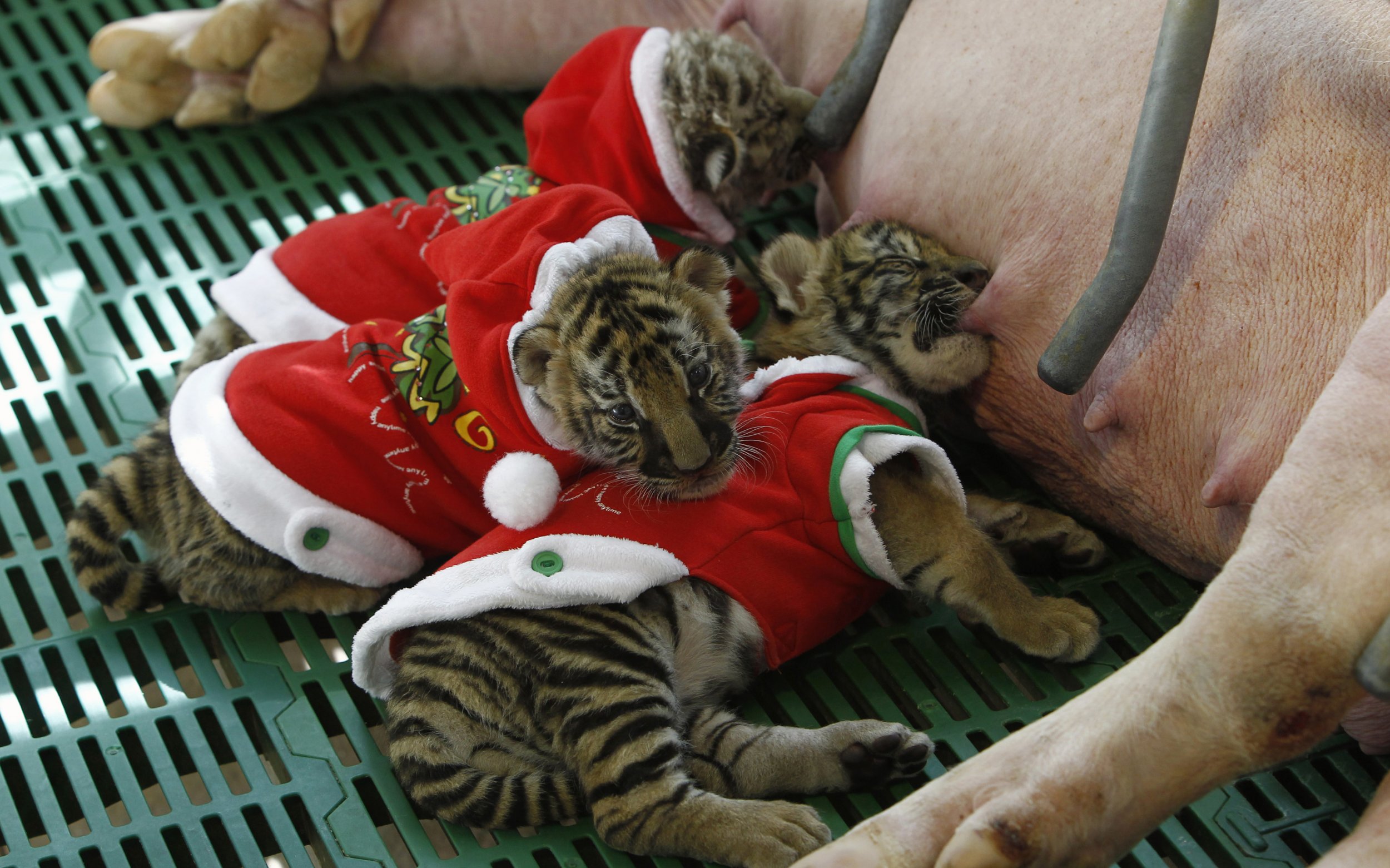
Thailand's infamous Tiger Temple in Chiang Mai, where visitors could pet doped tigers, is set to reopen under a new name in 2017. The attraction was closed down last year after the discovery of 40 dead baby tiger cubs in a freezer.
The Tiger Temple battled allegations of animal cruelty and mistreatment for years until it was finally closed. Known as Tiger Temple Co Ltd, it will open again under the name Golden Tiger (Thailand) Co Ltd.
The zoo was a well-known attraction for many tourists visiting Asia, who would visit the farm to pose with baby cubs and watch larger tigers do tricks. Tiger Temple Co Ltd was reported to have 137 tigers on its books, and was alleged to be involved in trafficking of both tigers and tiger parts.
An investigation by World Animal Protection found Tiger Temple Co Ltd are planning to reopen the temple, but they will not be granted a zoo license unless they meet 11 conditions within six months. Conditions include providing large enclosures and veterinary care. The venue for the proposed attraction is at Kanchanaburi, frequented by travelers from Bangkok keen to explore the site of the famous bridge built in 1942 by forced Asian laborers and Allied prisoners of war, immortalized in the film The Bridge on the River Kwai.
"Tiger farms have nothing to do with conservation—they just bring extreme suffering to these wild animals while living in appalling conditions," said Dr. Jan Schmidt-Burbach, a senior wildlife advisor at World Animal Protection.
Animal cruelty against the tigers was rife at the center where 50 percent of the tigers were in cages or enclosures less than 20sqm per animal, and many showed signs of stress, including pacing and tail biting.
A spokesperson from the World Animal Protection told Newsweek the Tiger Temple was "infamous for the way animals there suffered when it was open as a major tourist attraction and its alleged links to illegal wildlife trade. Tiger cubs were found dead in fridges, some in jars, when the Thai authorities raided it and closed it down. They also found tiger skins and tiger teeth trinkets and evidence of illegal breeding and trafficking of tiger parts."
A World Wildlife Fund (WWF) report found 76 percent of visitors to the Tiger farms in Thailand were unaware of inhumane treatment of tigers. WWF asked 2,000 people across Britain and found millennials and people from London were most likely to visit the farms. However, the report also said that since learning about the treatment of animals, 86 per cent were keen to see all tiger farms closed.
Heather Sohl, WWF-UK's chief advisor on wildlife said: "We have seen the number of tiger farms increase at an astounding rate across Asia over recent years. These undermine efforts to halt the illegal trade and protect wild tigers by [the tiger farms] complicating enforcement efforts and boosting the demand for products and parts. It is vital tiger farms are closed."
Uncommon Knowledge
Newsweek is committed to challenging conventional wisdom and finding connections in the search for common ground.
Newsweek is committed to challenging conventional wisdom and finding connections in the search for common ground.
About the writer
To read how Newsweek uses AI as a newsroom tool, Click here.








